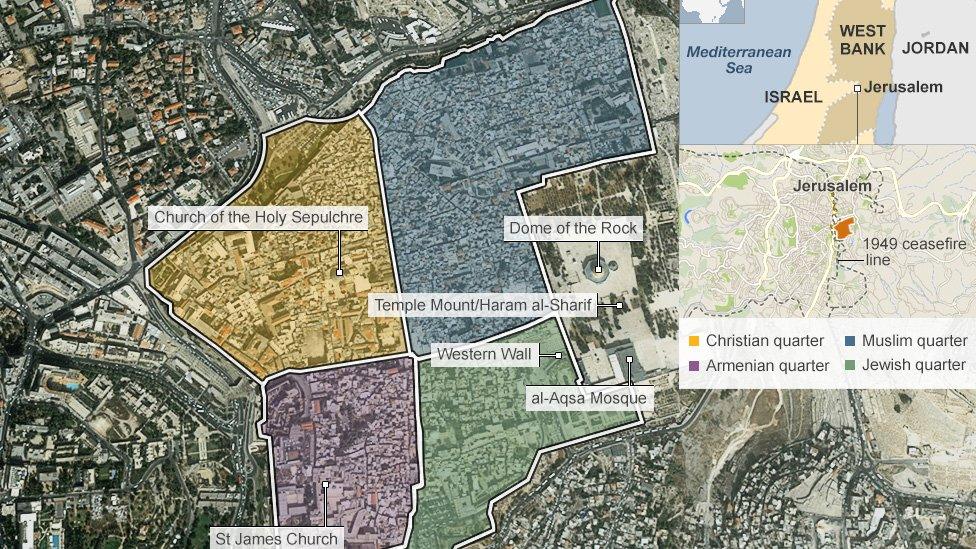Trump's Jerusalem move: Palestinian protests rage for third day
- Published
'I didn't fall, they shot me'
Palestinians have taken to the streets of the West Bank and the Gaza Strip for a third day angry at US President Donald Trump's recognition of Jerusalem as Israel's capital.
Hundreds protested, but numbers were down compared to Friday.
Earlier, Israel carried out strikes on Gaza in response to rocket fire aimed at southern Israel.
The move ends US neutrality on one of the region's most sensitive issues and has been criticised even by US allies.
Israel has always regarded Jerusalem as its capital, while the Palestinians claim East Jerusalem - occupied by Israel in the 1967 war - as the capital of a future Palestinian state.
For Mr Trump the decision fulfils a campaign promise and he has said it was "nothing more or less than a recognition of reality".
Protests erupt again
More than 600 Palestinians held protests at over 20 West Bank sites, according to the Israeli army, with some lobbing stones and petrol bombs at security forces.
In northern Israel a bus was pelted with rocks as it passed through mostly Arab communities, with three Israelis injured, Haaretz reported, external.
There were also protests at the Gaza border, where a day before two Palestinians were killed in clashes with Israeli troops.
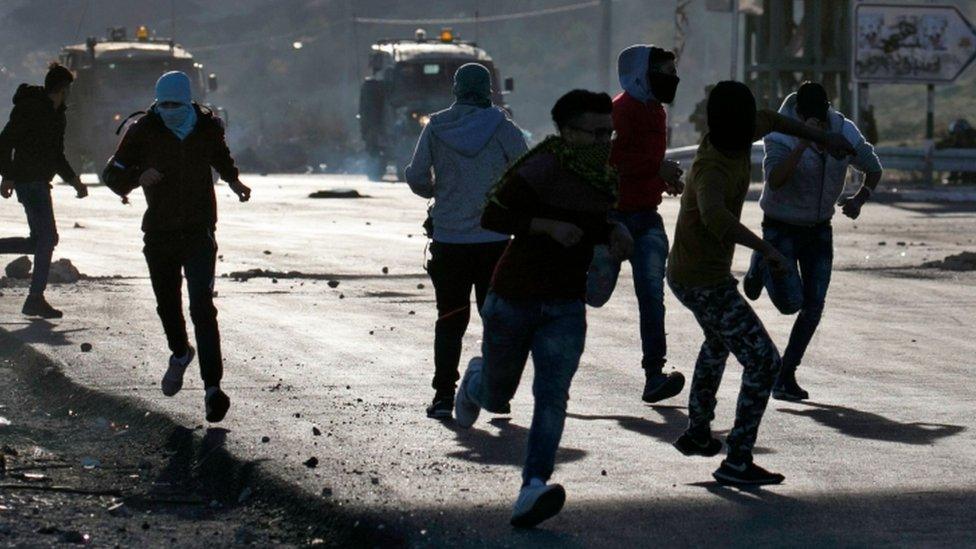
This was the scene in the West Bank city of Nablus
Three rockets were fired at Israel late on Friday, with no casualties reported.
Israel responded with strikes targeting what the army said were military sites belonging to the Islamist group Hamas, killing two of its members.
Thousands of Palestinians had protested on Friday, with solidarity demonstrations held across the Arab world and in other Muslim-majority nations.
'No Pence-Abbas talks'
The US vice-president is due to visit the Middle East later this month, but Palestinian President Mahmoud Abbas' adviser Majdi al-Khaldi said the pair would not be meeting.
"America has crossed all red lines with its latest decisions over Jerusalem," Majdi al-Khaldi said.
There has been no comment from Mr Abbas himself though and it is not clear what, if any, meeting had been scheduled.
US ambassador Nikki Haley calls UN hostile to Israel
At an emergency meeting of the UN Security Council on Friday, the US found itself isolated, with the other 14 members all condemning Mr Trump's declaration.
But US ambassador Nikki Haley accused the UN of bias, saying it "has outrageously been one of the world's foremost centres of hostility towards Israel", and that the US was still committed to finding peace.
Why does Trump's announcement matter?
Jerusalem is of huge importance to both Israel and the Palestinians. It contains sites sacred to the three major monotheistic faiths - Judaism, Islam and Christianity.
Israel occupied the eastern sector - previously occupied by Jordan - in 1967, and annexed it in 1980, but the move has never been recognised internationally.
Why the ancient city of Jerusalem is so important
Some 330,000 Palestinians live in East Jerusalem, along with about 200,000 Israeli Jews in a dozen settlements there. The settlements are considered illegal under international law, though Israel does not regard them as settlements but legitimate neighbourhoods.
According to the 1993 Israel-Palestinian peace accords, the final status of Jerusalem is meant to be discussed in the latter stages of peace talks.
The last round of talks between Israel and the Palestinians broke down in 2014 and while the US is formulating fresh proposals, Palestinian officials have said Mr Trump's announcement has disqualified the US from brokering future negotiations.
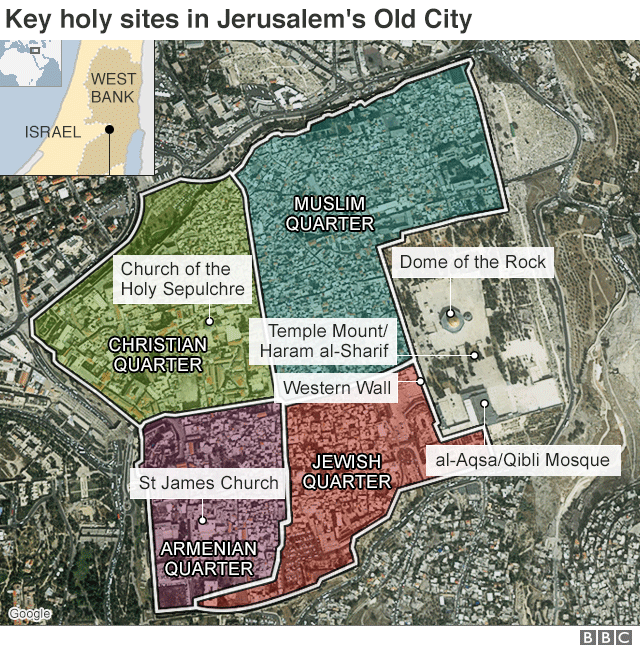
- Published8 December 2017
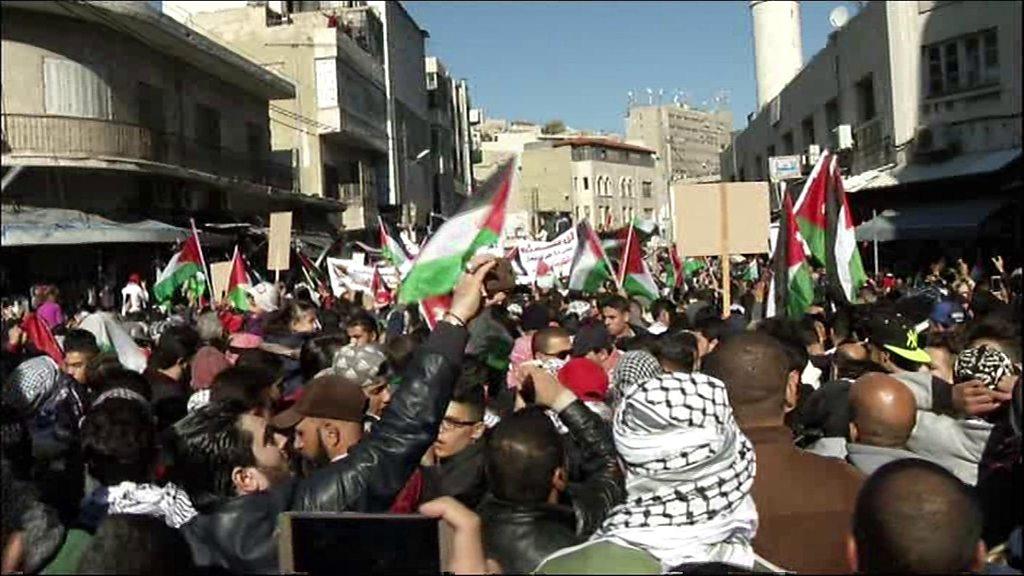
- Published8 December 2017
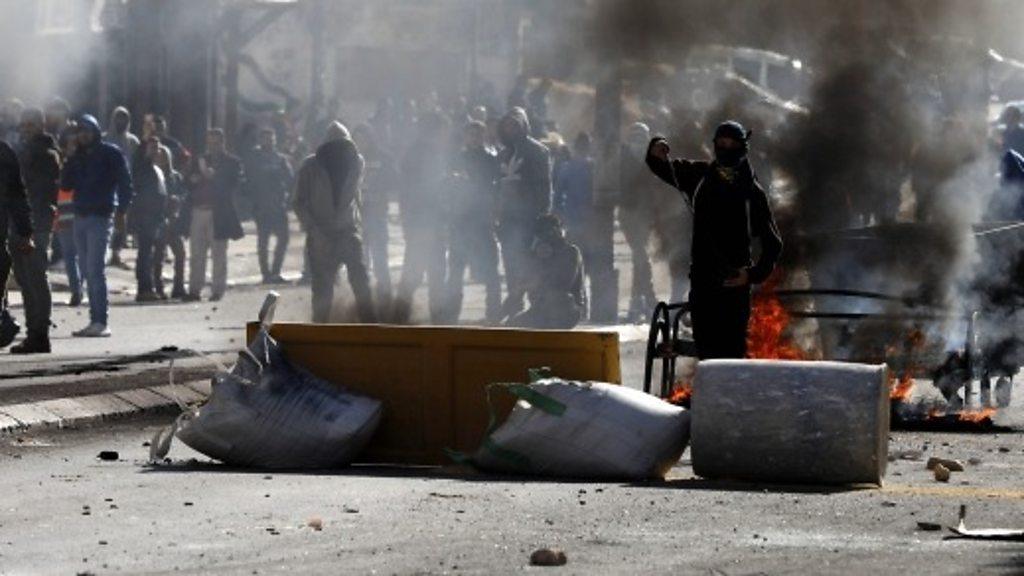
- Published7 December 2017
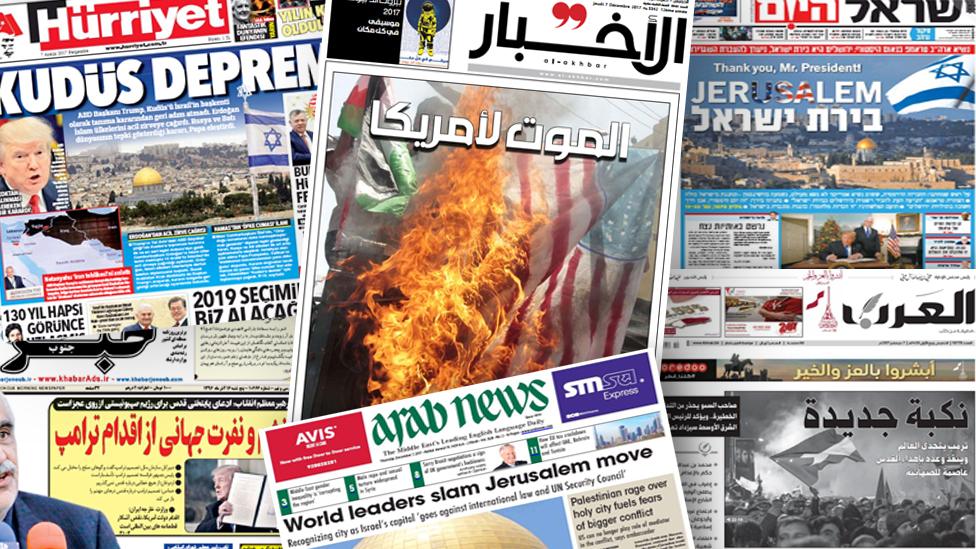
- Published7 December 2017
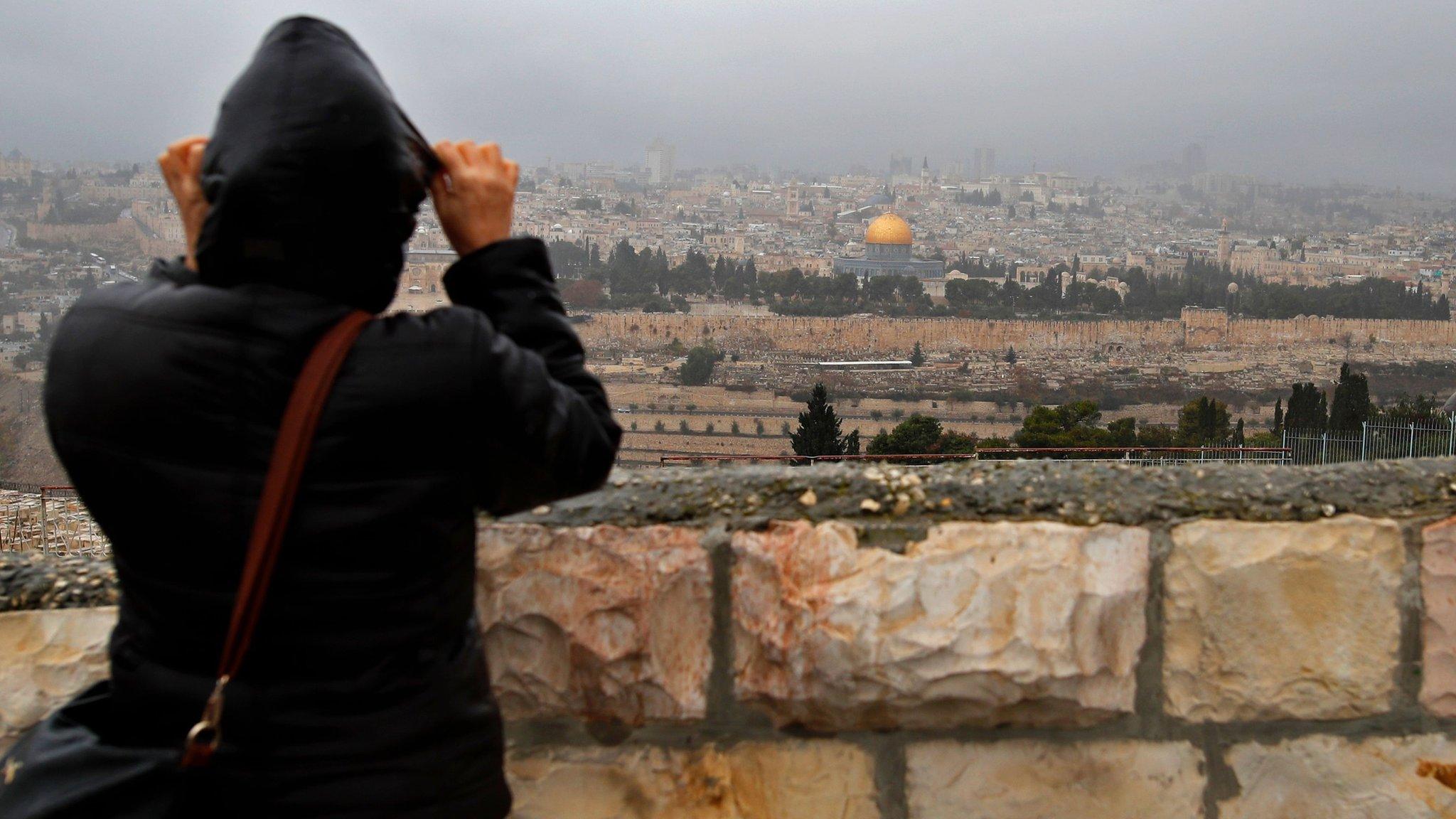
- Published6 December 2017
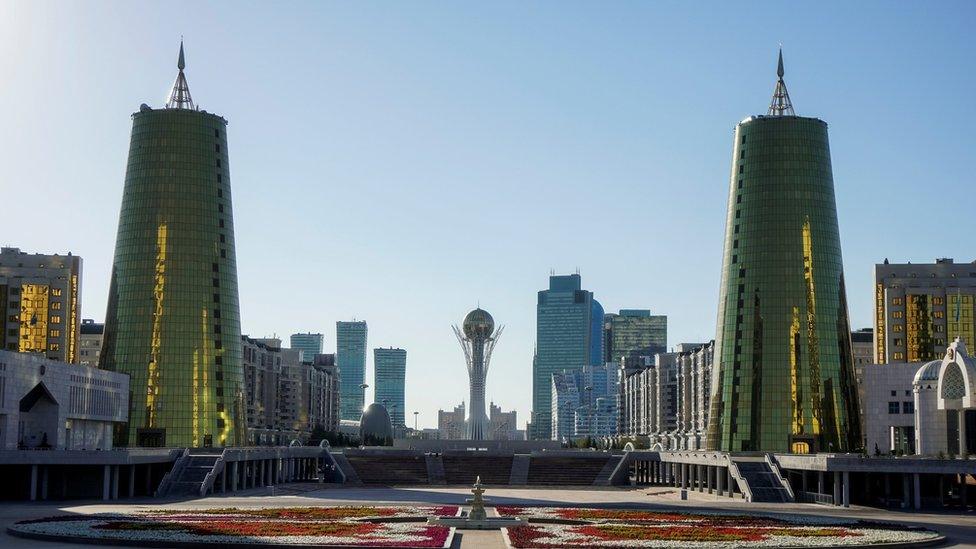
- Published14 May 2018
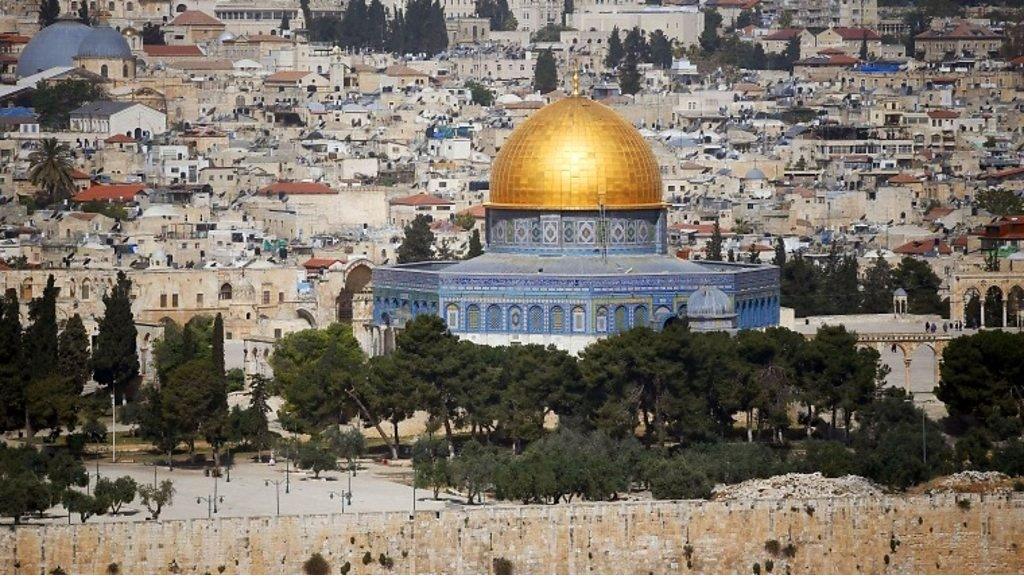
- Published30 October 2014
